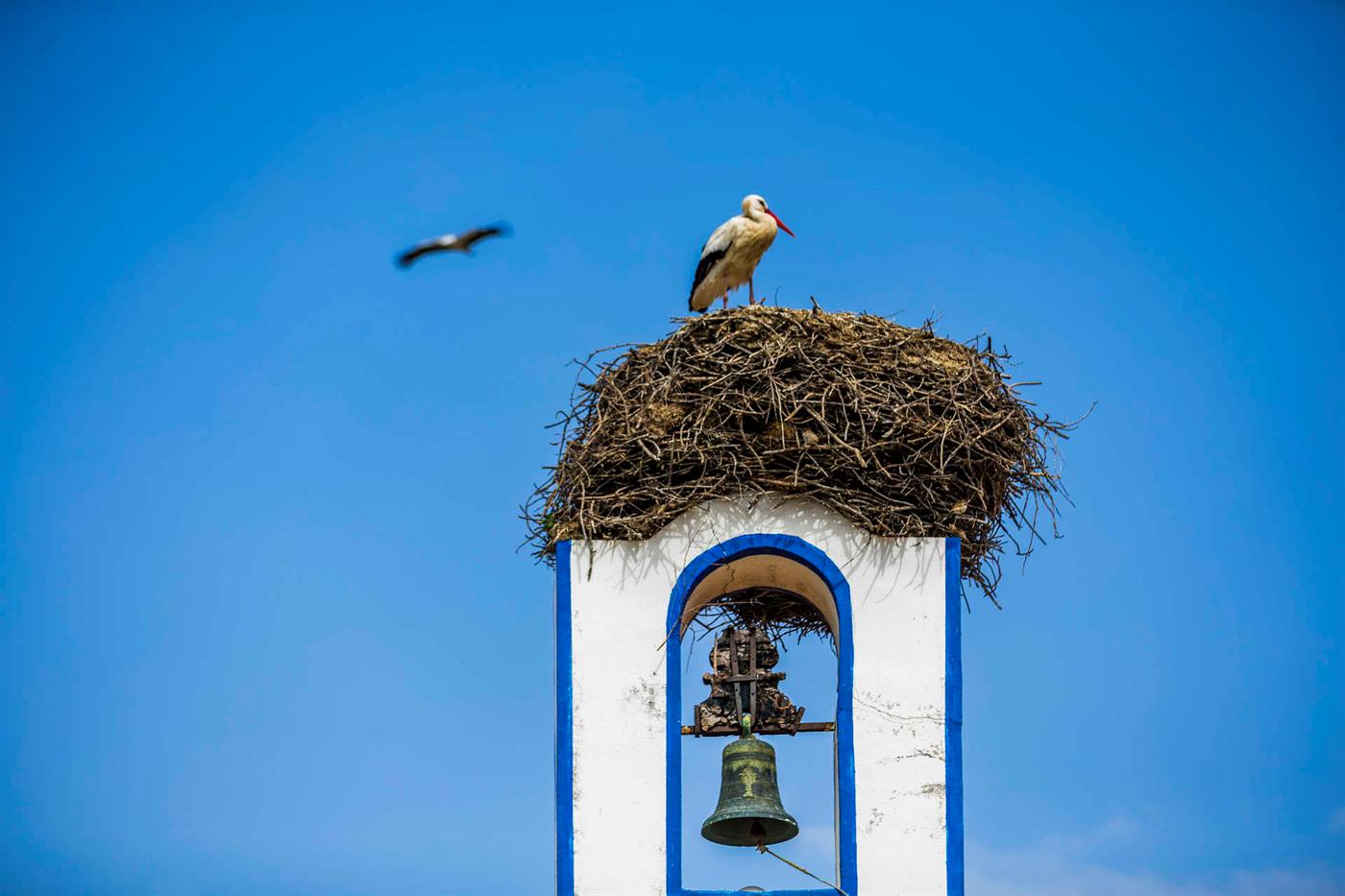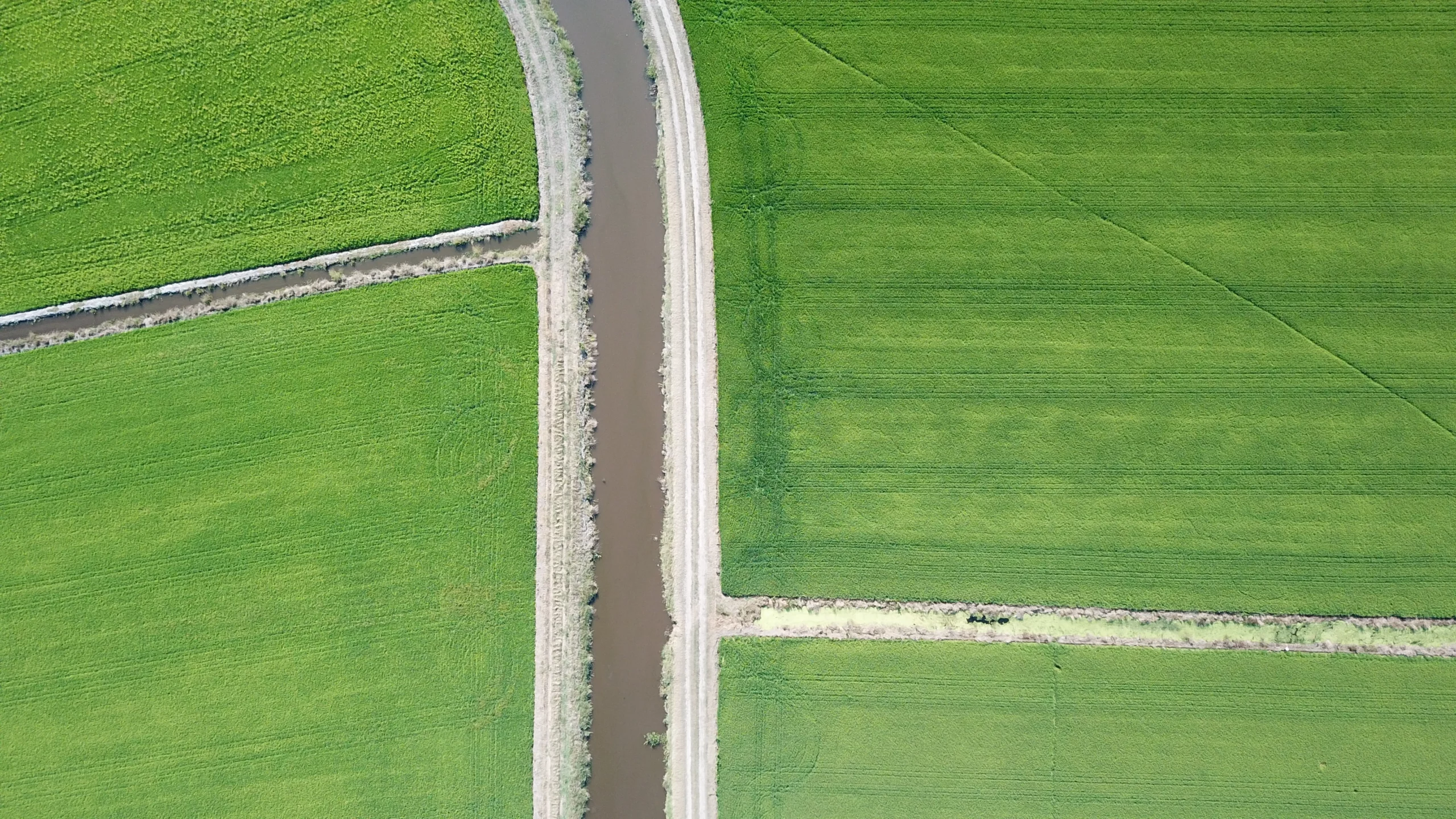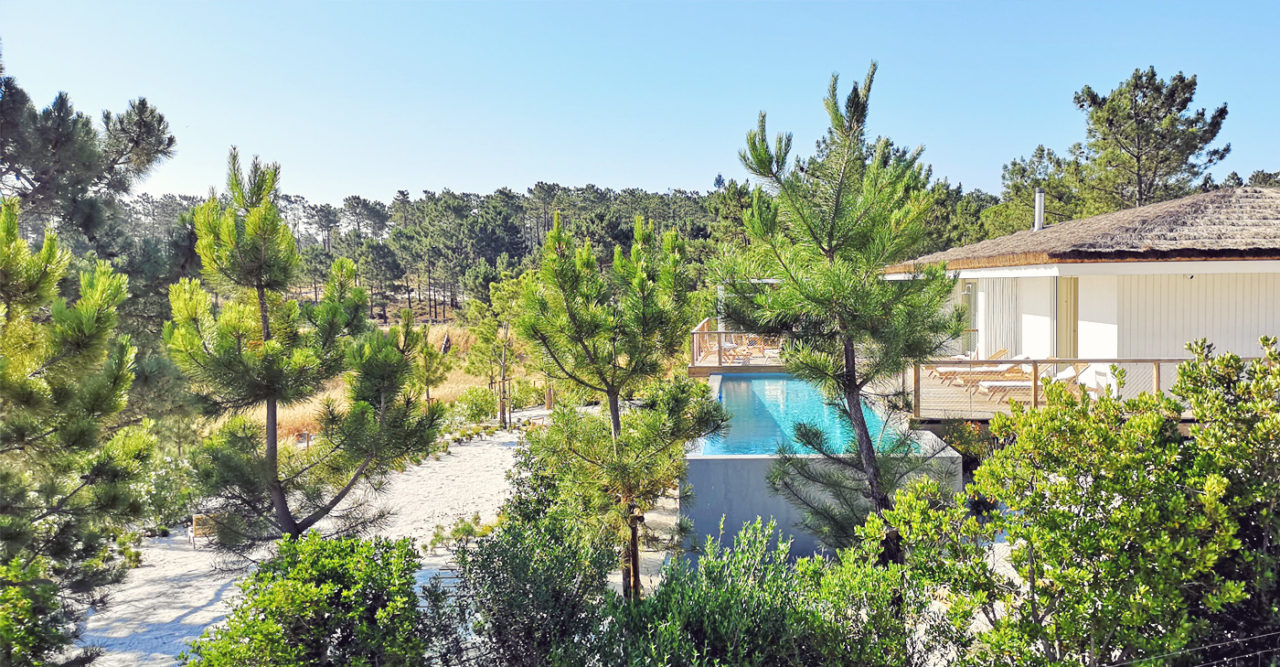

The storks, emblem of Comporta in Portugal
Comporta, a small town in the Alentejo region, stretching along the Atlantic Ocean and hemmed in by long white sandy beaches, no needs introduction. Very popular with the jet set and tourists from all over the world, this destination is described by those who set foot here as a true haven of peace. Between forests of cork oak, rice fields and sand dunes, you will be surrounded by a nature conducive to relaxation and disconnection. The Sado nature reserve is home to some 200 species of birds, including the storks, emblems of the city of Comporta. Have fun spotting them on horseback, on foot, by bike or even by paddle. Most popular in the summer and Autumn in Portugal, this paradise can be enjoyed at any time of the year.
Some information about the storks of Comporta
The storks of Comporta, which are the delight of amateur and professional photographers, are white storks. They can reach an impressive size of 1.15 meters in height and 2 meters in wingspan, which makes them one of the largest wading birds in the world. This migratory bird moves in groups of up to several hundred individuals. Unable to sing, the stork communicates by snapping its beak. During your stay in Comporta, you will quickly learn to recognize this characteristic sound and to look up for a nest. Storks build their nests at heights of more than 10 meters, in trees, but also on human constructions such as chimneys or bell towers. Built with branches found on the ground, these nests can weigh several hundred kilos and measure up to 2 meters high.
The Comporta stork, a migratory bird?
If since the 70s we observe every year the comings and goings of the storks between the countries of the north of Europe and the sub-Saharan Africa, these behaviours tend to slow down. Originally, storks left Europe at the end of the summer to winter in the warm countries of Africa. They then returned in February to breed. To move, the stork lets itself glide thanks to the warm currents, which are present only above the land. To reach Africa, it must choose between the Strait of Gibraltar in the south of the Iberian Peninsula and the Bosphorus Strait in Turkey. With global warming, fewer and fewer storks are making the long wintering journey. Most now stop in southern Europe, in Spain, Portugal and Greece, some even settling year-round in certain regions such as Comporta.
Comporta, a haven for all
If tourists appreciate Comporta for its peace and quiet and the quality of its environment, the storks seem to agree with them. Every year the population of these birds increases in Comporta and the surrounding villages. This stage on their migratory route seems to have won them over. The mild climate throughout the year allows them to settle down and complete their breeding cycle in the best conditions. The nature reserve of Sado protects them from hunting and offers them a sufficient food supply to feed the storks without effort. Why undertake a grueling journey every year when happiness is at hand? Come visit Comporta and like the storks, you’ll want to stay! Our luxury homes and cabins are the perfect place to spend a relaxing vacation and explore the area in search of storks and all the other wonders that surround Comporta.
Comporta Erfahrung

Portugal im Frühling – Die schönten Orte
PPortugal ist ein Land mit einer Fläche von 92.212 km², das im Südwesten Europas liegt und in dem rund 10 Millionen Menschen leben. Aufgrund seiner geografischen Lage ist es ein privilegiertes Land mit einer Küstenlinie von etwa 943 km am Atlantischen Ozean. Der Frühling ist eine ausgezeichnete Wahl für eine Reise nach Portugal. Was auch

Comporta Lifestyle: Portugals neuer schicker Rückzugsort
Comporta liegt an der portugiesischen Alentejo-Küste und ist eines der einzigartigsten und exklusivsten Reiseziele des Landes. Umgeben von riesigen Reisfeldern, weißen Sandstränden und einem entspannten Lebensstil verbindet die Region Einfachheit mit Raffinesse und zieht Urlauber an, die Ruhe, Natur und rustikalen Charme suchen. Bekannt für sein bohemian-elegantes Ambiente und besondere gastronomische und kulturelle Erlebnisse, ist

Die neuen Villen von Christian Louboutin
Der legendäre Designer Christian Louboutin, weltbekannt für seine Schuhe mit roten Sohlen, hat mit der Eröffnung seines Boutique-Hotels „Vermelho“ in Melides, Portugal, seine kühne und raffinierte Ästhetik in die Welt der Hotellerie gebracht. Das Projekt geht nun mit zwei neuen Villen, die jeweils ihren eigenen Stil haben und von unterschiedlichen Design- und Dekorationselementen inspiriert sind,
